The current age of e-commerce has ensured that a virtual store is no longer a luxury but a business requirement. With more consumers shopping online, choosing the best technology stack is either going to be the end of your eCommerce success or the beginning. The main element in this stack is Content Management System (CMS), which runs your store. A powerful CMS is not only the content management system of your web site, it predetermines the entire shopping experience, transaction control, product display control and scalability. Here, in this all-inclusive blog post, we are going to discuss the top 10 most popular eCommerce CMS platforms, their characteristics, advantages, drawbacks, and areas of application so that you could choose the most suitable one in accordance with your business.
What Is an eCommerce CMS?
An eCommerce CMS (Content Management System) is a software solution designed to facilitate the creation, editing, organization, and publication of digital content on an online store. Unlike traditional CMS platforms that primarily manage blogs or informational websites, an eCommerce CMS includes features critical for running an online store:
- Product catalog management
- Secure payment processing
- Inventory and order management
- Customer account management
- SEO and marketing tools
The goal is to simplify the process of managing an online store without requiring users to write complex code or hire a full-time developer.
Criteria for Selection
We’ve evaluated the most widely used eCommerce CMS platforms based on the following essential criteria:
1. opularity & Market Share: Adoption rates across industries and user demographics.
2. Ease of Use: User interface design and learning curve.
3. Scalability: Ability to grow alongside your business needs.
4. Cost Structure: Initial investment and ongoing maintenance expenses.
5. Customizability: Flexibility to modify and expand the platform.
6. Security Features: Protection of customer data and PCI compliance.
7. Community & Support: Availability of documentation, forums, and technical support.
Top 10 Most Used eCommerce CMS Platforms
1. Shopify:

Shopify is a fully hosted SaaS platform specifically built for eCommerce. It currently powers over 4 million businesses globally, from solo entrepreneurs to enterprise brands.
Key Features:
- Drag-and-drop website builder
- Secure checkout system with over 100 payment gateways
- Built-in SEO, marketing, and analytics tools
- Extensive app store and third-party integrations
Pros:
- Quick setup with minimal technical knowledge
- Responsive themes and mobile optimization
- 24/7 customer support and community forums
Cons:
- Limited backend access for advanced customizations
- Additional fees for third-party payment processors
Cost: Plans start at $39/month (Basic), $105/month (Shopify), and $399/month (Advanced). Custom pricing available for Shopify Plus.
Best For: Entrepreneurs, startups, and small-to-medium-sized businesses looking for a fast and reliable way to launch their online store.
2. WooCommerce:
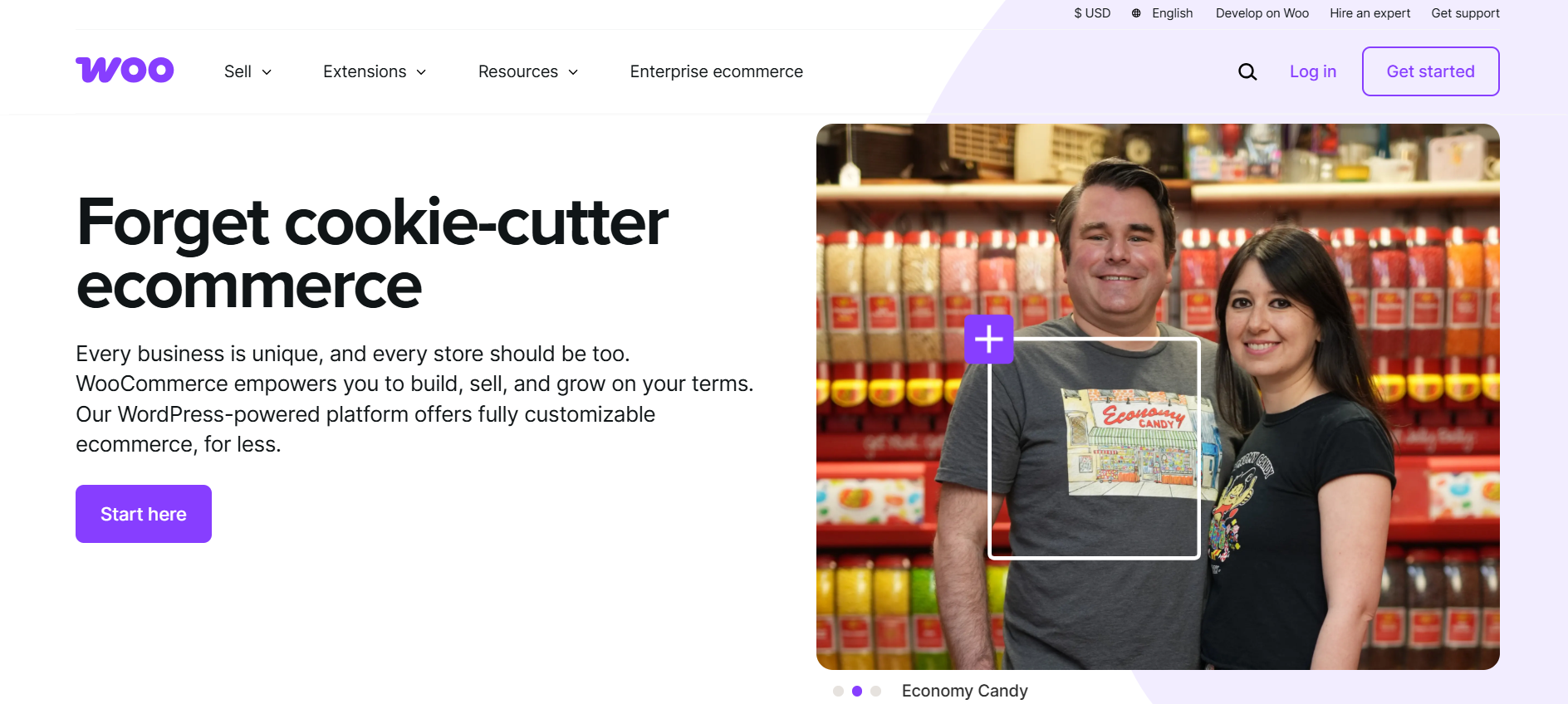
Built as a plugin for WordPress, WooCommerce is an open-source CMS that transforms a standard blog or business site into a fully functional eCommerce store. It’s particularly appealing to users already familiar with WordPress.
Key Features:
- Unlimited product listings and categories
- Support for physical and digital products
- Extensive library of extensions and themes
- Customizable checkout options
Pros:
- No licensing fees (core plugin is free)
- Full control over source code and data
- Large global community and developer support
Cons:
- Requires web hosting and SSL certification
- Maintenance and security depend on the user
Cost: Free core plugin. Costs for hosting ($5–$25/month), themes ($20–$100), and extensions (varies) apply. Total can range from $100 to $500+ annually.
Best For:
Businesses already using WordPress, or those looking for a highly customizable and budget-friendly platform.
3. Magento (Adobe Commerce):
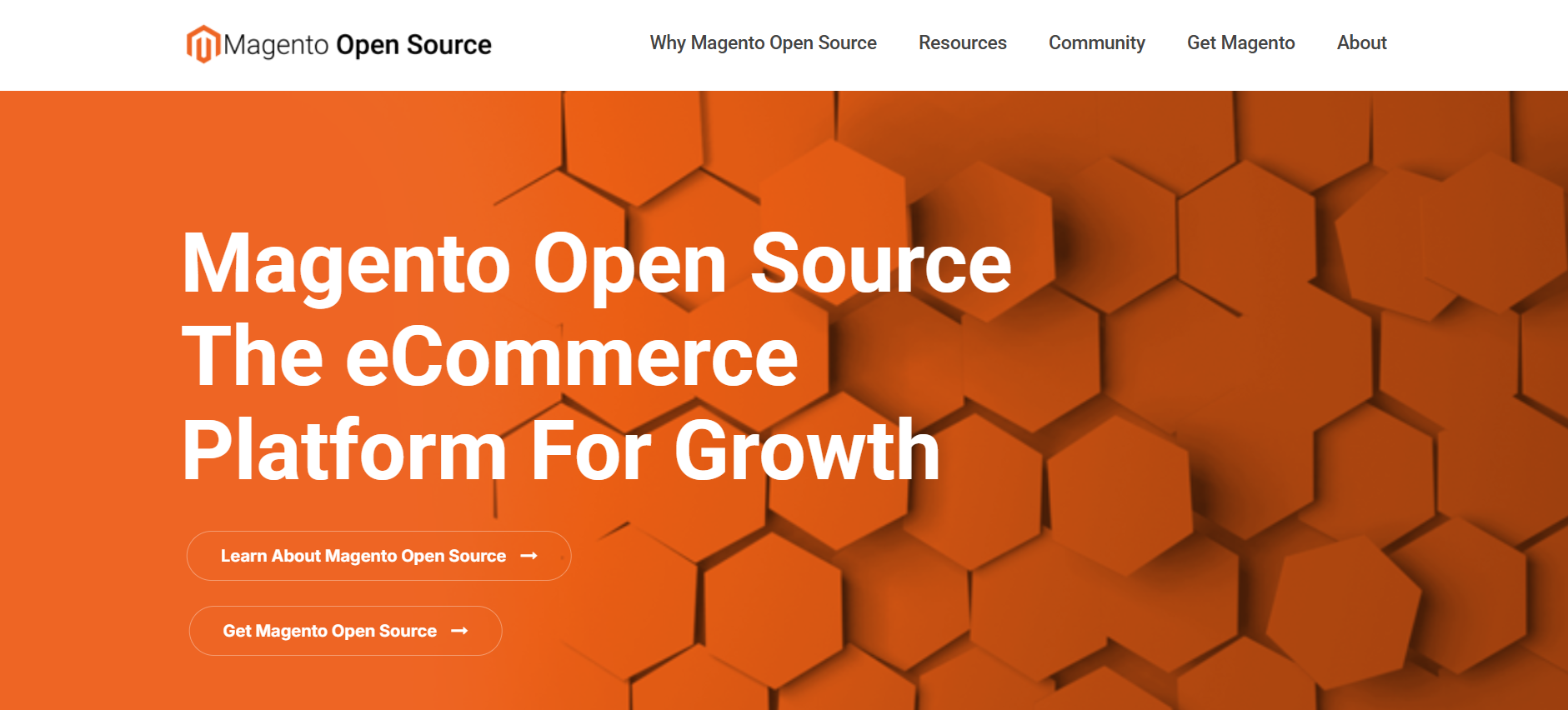
Magento, rebranded as Adobe Commerce, is one of the most powerful open-source eCommerce CMS platforms on the market. It offers unparalleled flexibility and is often the platform of choice for large enterprises.
Key Features:
- Robust catalog and inventory management
- Multi-store, multi-language, and multi-currency support
- Built-in B2B functionality
- Strong API architecture for third-party integrations
Pros:
- Highly customizable with a vast extension marketplace
- Scalable to millions of SKUs
- Comprehensive reporting and analytics tools
Cons:
- High cost for hosting and development
- Complex setup and management requiring technical expertise
Cost: Open-source version is free. Adobe Commerce (cloud/enterprise) pricing starts around $22,000/year and can exceed $100,000+ depending on store size and traffic.
Best For: Enterprises and large eCommerce operations with in-house IT teams or the ability to outsource custom development.
4. BigCommerce:

BigCommerce is a cloud-based platform that combines ease of use with powerful eCommerce functionality. Known for its robust native features, it caters to both small businesses and large enterprises.
Key Features:
- Built-in marketing tools and product reviews
- Advanced SEO capabilities
- Multi-channel selling across Amazon, eBay, and social media
- Headless commerce architecture available
Pros:
- No transaction fees
- Excellent uptime and performance
- Fast integration with enterprise software (ERP, CRM)
Cons:
- Theme customization can be restricted
- Plans are more expensive than basic Shopify tiers
Cost: Standard Plan $39/month, Plus $105/month, Pro $399/month. Enterprise pricing available upon request.
Best For: Mid-sized to large businesses looking for a scalable, feature-rich, and cloud-based solution.
5. Wix eCommerce:

Wix has made a name for itself as a user-friendly website builder. Its eCommerce component adds product and order management features to its visual editor.
Key Features:
- Pre-designed eCommerce templates
- Mobile-optimized storefronts
- Multiple payment gateways
- Integrated marketing suite
Pros:
- Ideal for beginners and non-coders
- Affordable pricing tiers
- All-in-one hosting and CMS solution
Cons:
- Limited backend customization
- Less suitable for scaling to thousands of products
Cost: Business Basic $27/month, Business Unlimited $32/month, Business VIP $59/month. All include eCommerce features.
Best For:
Small businesses and independent creators need a simple and visually appealing store.
6. Squarespace:

Squarespace combines stunning design aesthetics with robust eCommerce capabilities. It appeals to creative professionals looking to build a store that reflects their brand identity.
Key Features:
- Inventory and order tracking
- Custom discounting and promotional tools
- SSL encryption and PCI compliance
- Email marketing and SEO tools
Pros:
- Designer-quality templates
- Streamlined dashboard
- Strong customer support and onboarding guides
Cons:
- Limited extensibility for advanced features
- Fewer integrations compared to Shopify or WooCommerce
Cost: Business Plan $33/month (with transaction fees), Basic Commerce $36/month, Advanced Commerce $65/month (billed annually).
Best For: Photographers, artists, and boutique retailers focused on brand storytelling and visuals.
7. PrestaShop:
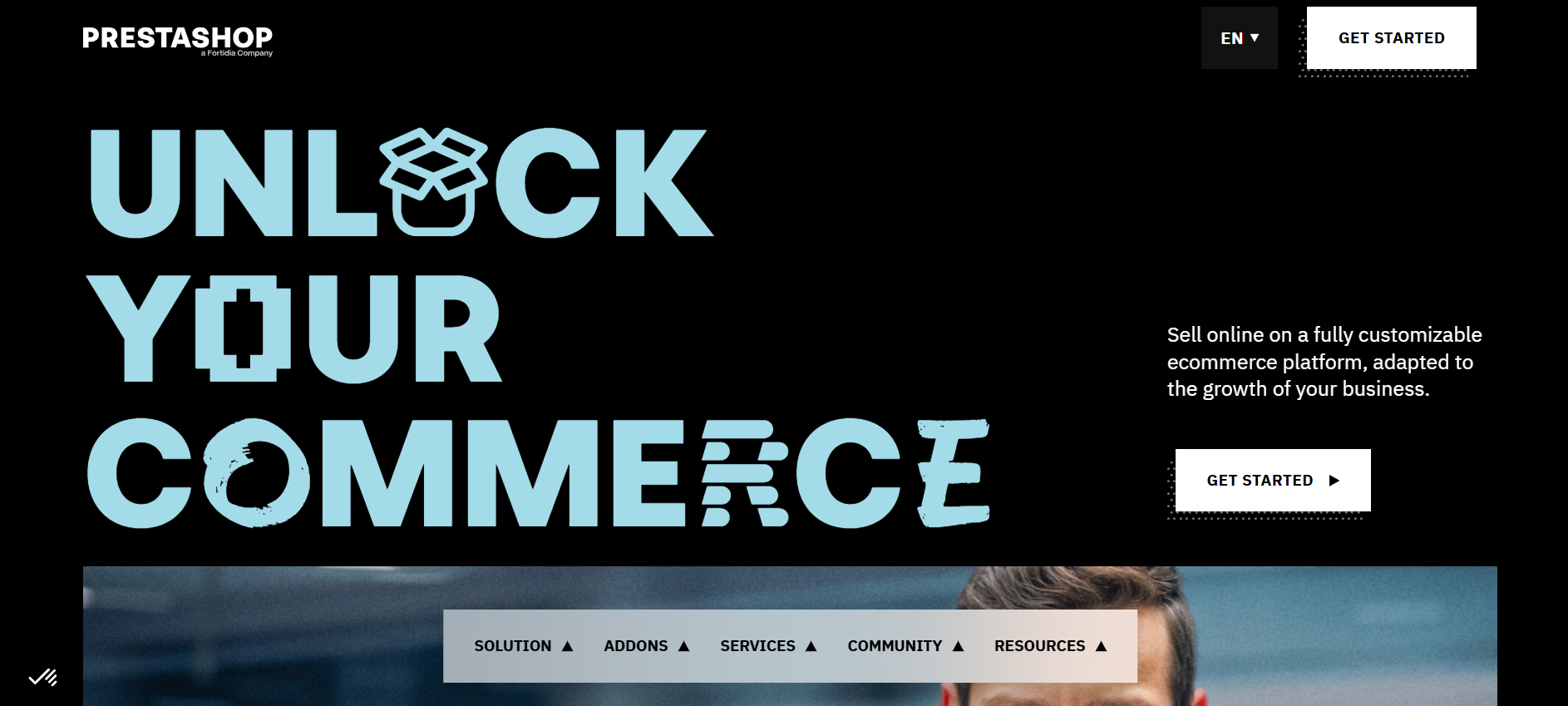
PrestaShop is a free, open-source eCommerce CMS known for its flexibility and international selling capabilities. It offers over 600 built-in features and a rich add-on marketplace.
Key Features:
- Product filtering and layered navigation
- Tax rules and shipping configurations
- Multi-language and multi-currency support
- Customizable storefront themes
Pros:
- No licensing fees
- Active global user community
- Full control over customization and data
Cons:
- Technical know-how required for setup and maintenance
- Add-ons and premium modules can be costly
Cost: Free to download and use. Additional costs for hosting ($5–$20/month), themes, and modules. A typical store can cost $100–$1000+ depending on customization.
Best For: Tech-savvy SMBs and retailers expanding into international markets.
8. OpenCart:
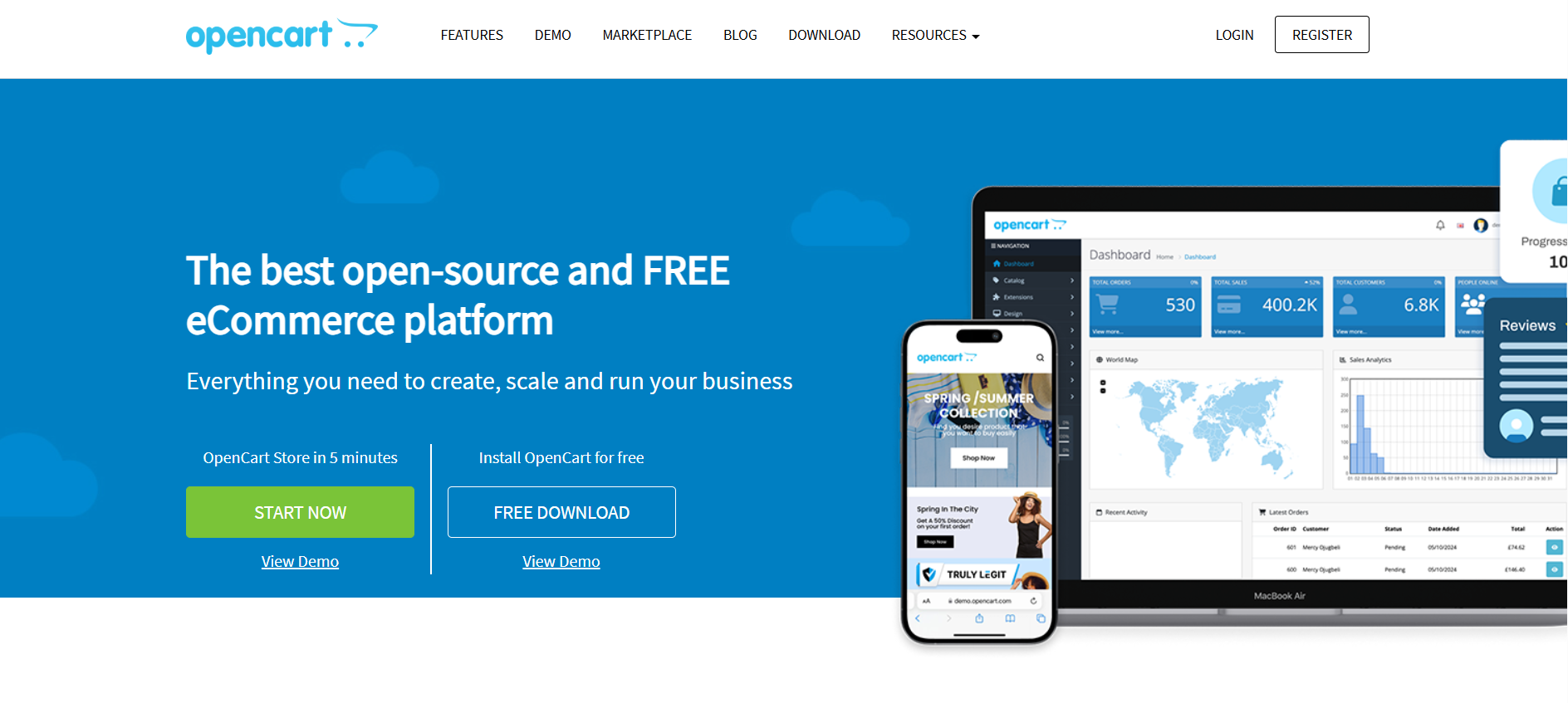
OpenCart is a lightweight, open-source platform that provides essential eCommerce functionality out of the box. It’s ideal for users looking to set up a basic store quickly.
Key Features:
- Multi-store management from one admin interface
- Built-in affiliate system
- Over 13,000 extensions and modules
- Custom shipping and payment methods
Pros:
- Free to use and install
- Simple admin panel
- Low system requirements
Cons:
- SEO and performance enhancements require plugins
- Smaller support community compared to WooCommerce or Magento
Cost: Free core system. Expenses include hosting ($3–$20/month), themes, and extensions. Total cost may range from $100 to $500+ per year.
Best For: Startups and small retailers with minimal technical resources.
9. Salesforce Commerce Cloud:
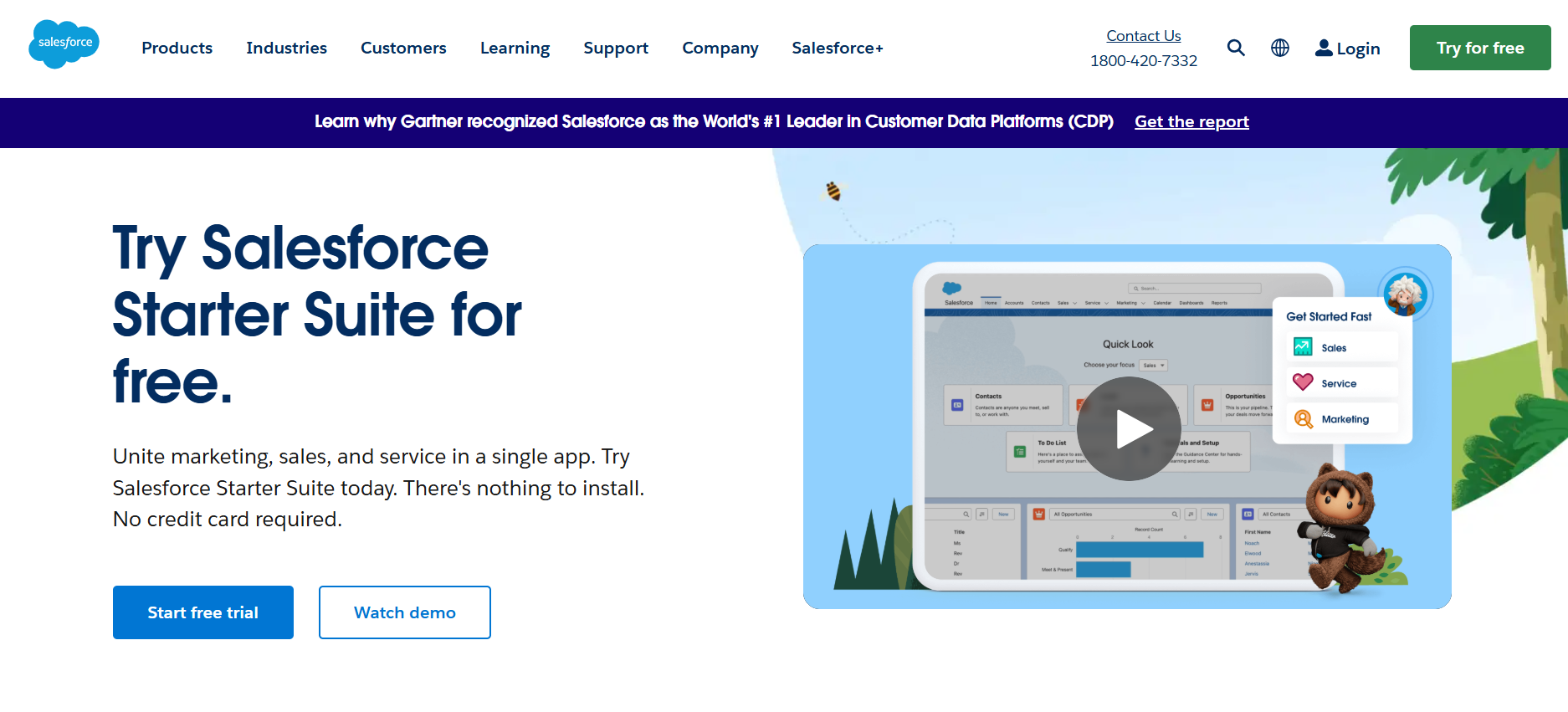
Salesforce Commerce Cloud is a powerful enterprise-grade platform tailored for large-scale operations. It focuses on unified commerce and delivering personalized shopping experiences.
Key Features:
- AI-powered product recommendations (Einstein AI)
- Full CRM and customer journey integration
- Omnichannel commerce (online, mobile, in-store)
- Comprehensive API support
Pros:
- Enterprise-level reliability and performance
- Real-time inventory and order data
- Seamless Salesforce ecosystem integration
Cons:
- High total cost of ownership
- Requires specialized implementation partners
Cost: Pricing is not publicly disclosed. Typically starts from $200,000/year for enterprise solutions, depending on sales volume and customizations.
Best For: Multinational enterprises aiming to deliver highly personalized and scalable eCommerce experiences.
10. Ecwid:
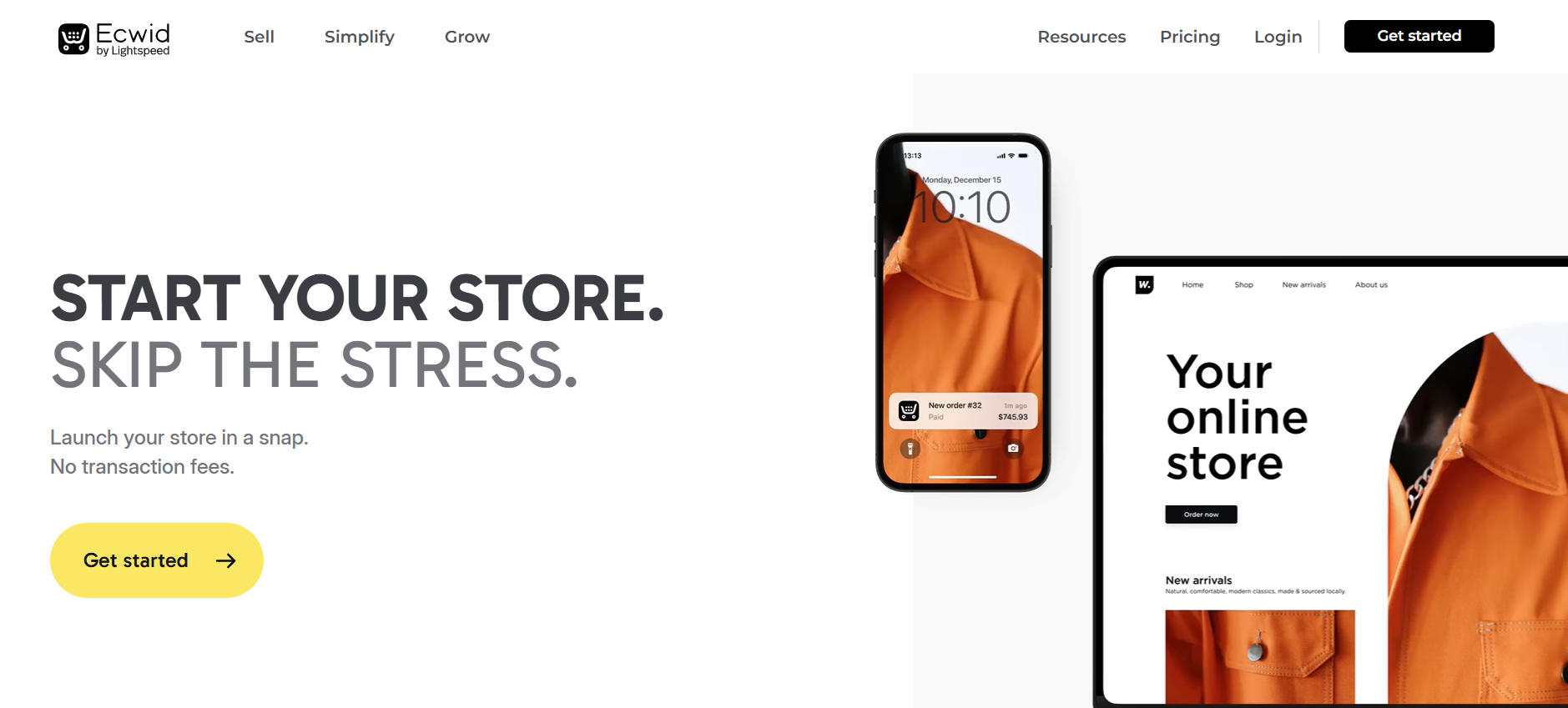
Ecwid stands out by enabling eCommerce functionality on existing websites. It works with WordPress, Wix, Joomla, and other CMS platforms.
Key Features:
- Add-to-site embed widget
- Mobile POS and inventory sync
- Language translation and automatic tax calculations
- Sell on Facebook, Instagram, and Amazon
Pros:
- Easy to integrate and deploy
- Low barrier to entry
- Cloud-hosted and secure
Cons:
- Limited layout flexibility
- Dependent on third-party website performance
Cost: Free plan available. Paid plans include Venture $19/month, Business $39/month, Unlimited $99/month.
Best For: Small businesses and service providers looking to add store functionality without migrating their existing site.
Comparison Table
| CMS Platform | Best For | Ease of Use | Scalability | Pricing | Customization |
| Shopify | SMBs & Startups | ⭐⭐⭐⭐ | ⭐⭐⭐⭐ | $39–$399/mo | Medium |
| WooCommerce | WordPress Users | ⭐⭐⭐ | ⭐⭐⭐⭐ | $100–$500+/yr | High |
| Magento | Large Enterprises | ⭐⭐ | ⭐⭐⭐⭐⭐ | $22K–$100K+/yr | Very High |
| BigCommerce | Growing Businesses | ⭐⭐⭐⭐ | ⭐⭐⭐⭐ | $39–$399/mo | Medium |
| Wix eCommerce | Beginners & Small Biz | ⭐⭐⭐⭐⭐ | ⭐⭐ | $27–$59/mo | Low |
| Squarespace | Creatives | ⭐⭐⭐⭐⭐ | ⭐⭐⭐ | $33–$65/mo | Medium |
| PrestaShop | Tech-Savvy SMBs | ⭐⭐⭐ | ⭐⭐⭐⭐ | $100–$1000+/yr | High |
| OpenCart | Budget Businesses | ⭐⭐⭐⭐ | ⭐⭐⭐ | $100–$500+/yr | Medium |
| Salesforce Commerce | Large Enterprises | ⭐⭐⭐ | ⭐⭐⭐⭐⭐ | $200K+/yr | High |
| Ecwid | Add-on eCommerce | ⭐⭐⭐⭐ | ⭐⭐ | $0–$99/mo | Low |
How to Choose the Right eCommerce CMS for Your Business
Choosing the right eCommerce CMS is not a one-size-fits-all decision. Here are a few guiding questions:
- What is your budget? Consider both initial setup and ongoing operational costs.
- Do you have technical resources? Platforms like Magento or PrestaShop require developer involvement.
- How fast do you expect to scale? Choose a platform that won’t restrict your growth.
- What integrations do you need? CRM, ERP, POS, or marketing tools may dictate your choice.
- Do you need multi-language or multi-currency support? Look for platforms designed for international reach.
Selecting an eCommerce development Company is important to develop high-performing and scalable online stores. FindBestFirms makes the process even easier by providing a list of the best-rated Shopify development companies, which are tested in terms of expertise, reviews, and successful projects. When you open a new location or want to streamline the current one, FindBestFirms will help you find reliable specialists that know the ecosystem of Shopify. The platform helps save on time and is guaranteed that you work with the developers that share your business objectives, financial, and timeframe. FindBestFirms. is your trusted source of finding the best in Shopify development.
Final Thoughts
ECommerce CMS is not a simple site builder, it is the main core of your online business. The best platform is the one that suits your goals, resources and customer expectations whether it is the plug-and-play simplicity of Shopify, the flexibility of WooCommerce, or the enterprise power of Salesforce Commerce Cloud. Thorough analysis of your alternatives will guide you to invest in a solution that will enhance long-term growth and success.
Need expert guidance in building your online store? Contact our team for personalized consultation and implementation services tailored to your business needs.

